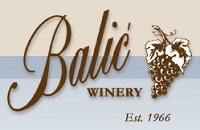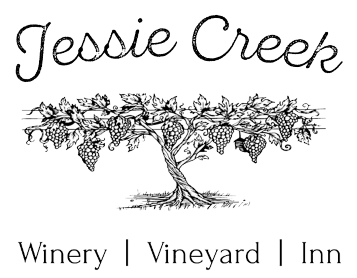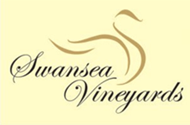Related Research Articles
The New Jersey Division of Alcoholic Beverage Control is an agency of the government of the state of New Jersey that regulates commerce in alcoholic beverages in that state.

The production of wine in New Jersey has increased significantly in the last thirty years with the opening of new wineries. Beginning in 1981, the state legislature relaxed Prohibition-era restrictions and crafted new laws to facilitate the growth of the industry and provide new opportunities for winery licenses. Today, New Jersey wineries are crafting wines that have earned recognition for their quality from critics, industry leaders, and in national and international competitions. As of 2019, New Jersey currently has 51 licensed and operating wineries with several more prospective wineries in various stages of development.

The state laws governing alcoholic drinks in New Jersey are among the most complex in the United States, with many peculiarities not found in other states' laws. They provide for 29 distinct liquor licenses granted to manufacturers, wholesalers, retailers, and for the public warehousing and transport of alcoholic drinks. General authority for the statutory and regulatory control of alcoholic drinks rests with the state government, particularly the Division of Alcoholic Beverage Control overseen by the state's Attorney General.

The production of distilled spirits in New Jersey has not been a large industry in the state. Strict alcoholic beverage control laws in place during and after Prohibition (1919-1933) prevented the industry from growing for almost a century. In 2013, the state passed a law creating a craft distillery license. and issued the first new distillery license since Prohibition to Jersey Artisan Distilling

Westfall Winery is a winery in Montague Township in Sussex County, New Jersey. Formerly a stop on the Underground Railroad and a dairy farm, the vineyard was first planted in 2000, and opened to the public in 2003. Westfall has 6 acres of grapes under cultivation, and produces 9,000 cases of wine per year, mostly from imported grapes. The winery is named for the family that owned the farm from 1774 to 1940. It was sold in December 2017 and be an animal sanctuary.

Balic Winery is a winery in the Mays Landing section of Hamilton Township in Atlantic County, New Jersey. The vineyard was first planted in the early 19th century by descendants of the original settlers of Mays Landing. Balic is the third-oldest active winery in the state, after Renault Winery and Tomasello Winery, having opened in 1966. Balic is one of the largest winegrowers in New Jersey, having 57 acres of grapes under cultivation. The winery is named after its founder.

Brook Hollow Winery is a winery in the Columbia section of Knowlton Township in Warren County, New Jersey. Brook Hollow's original vineyard was first planted in 2002, and opened to the public in 2007. In 2013, the winery moved to a new location in Columbia. Brook Hollow has 8 acres of grapes under cultivation, and produces 1,050 cases of wine per year. The winery is named for a hollow created by Yards Creek, a stream that runs through the farm's original location.

Cape May Winery & Vineyard is a winery in the North Cape May section of Lower Township in Cape May County, New Jersey. The vineyard was first planted in 1992, and opened to the public in 1995. Cape May Winery is one of the larger winegrowers in New Jersey, having 25 acres of grapes under cultivation, and producing 11,000 cases of wine per year. The winery is named for the region where it is located.

Plagido's Winery is a winery located in Hammonton in Atlantic County, New Jersey. A family produce farm since the late 19th century, the vineyard was first planted in 1999, and opened to the public in 2007. The winery was originally known as "Placido's Winery," but the name was changed in 2008 because of winery with a similar name exists in Tuscany. Plagido has 14 acres of grapes under cultivation, and produces 4,200 cases of wine per year. The winery is named after the owner's great-grandfather, who immigrated from Italy in the late 19th century, and started a farm in Hammonton.
Cedarvale Winery is a winery in Logan Township in Gloucester County, New Jersey. A family produce farm since 1905, the vineyard was first planted in 2004, and opened to the public in 2008. Cedarvale has 8 acres of grapes under cultivation, and produces 2,500 cases of wine per year. The winery is named for the cedar swamps bordering the farm.

Chestnut Run Farm is a winery in Pilesgrove Township in Salem County, New Jersey that produces Fuji apple and Asian pear wines. The apple and pear trees were first planted in 1986 as part of a specialty produce farm. Chestnut Run began sales of its wine in 2007, and opened a tasting room in 2012. Chestnut Run has 5 acres of fruit trees under cultivation, and produces 700 cases of wine per year. The winery is named for the Chestnut Run, a stream that borders the farm.

Jessie Creek Winery is a winery in the Dias Creek section of Middle Township in Cape May County, New Jersey. The vineyard was first planted in 2002, and opened to the public in 2012. Jessie Creek has 5 acres of grapes under cultivation, and produces 1,200 cases of wine per year. The winery's name is an amalgamation of Jessie, the name of the former owner's mother, and Dias Creek.

Hopewell Valley Vineyards is a winery in Hopewell Township in Mercer County, New Jersey. The vineyard was first planted in 2001, and opened to the public in 2003. Hopewell Valley has 25 acres of grapes under cultivation, and produces 6,000 cases of wine per year. The winery is named for the region where it is located.

Four JG's Orchards & Vineyards is a winery in Colts Neck in Monmouth County, New Jersey. The vineyard was first planted in 1999, and opened to the public in 2004. Four JG's has 40 acres of grapes under cultivation, and produces 2,500 cases of wine per year. The winery is named after the four family members that own it, all of whom have the initials "JG."

Swansea Vineyards is a winery in Shiloh in Cumberland County, New Jersey. Formerly a produce farm, the vineyard was first planted in 1994, and opened to the public in 2007. Swansea has 12 acres of grapes under cultivation, and producing 2,000 cases of wine per year. The winery is named for the original settlers of Shiloh who were Seventh Day Baptists from Swansea, Wales.

Sylvin Farms Winery is a winery in the Germania section of Galloway Township in Atlantic County, New Jersey. The vineyard was first planted in 1977, and opened to the public in 1985. Sylvin Farms has 11 acres of grapes under cultivation, and produces 1,000 cases of wine per year. The winery’s name is an amalgamation of Sylvia and sylvan, reflecting the owner's wife's name and the surrounding Pine Barrens, respectively.

Valenzano Winery is a winery in Shamong in Burlington County, New Jersey, United States. A family grain and livestock farm since 1974, the vineyard was first planted in 1991, and opened to the public in 1996. Valenzano is one of the largest wine producers in New Jersey, having 88 acres of grapes under cultivation, and producing 80,000 cases of wine per year. The winery is named after the family that owns it.

Tomasello Winery is a winery located in Hammonton in Atlantic County, New Jersey. Tomasello is the second-oldest active winery in the state, after Renault Winery. The vineyard was first planted in 1888, and opened to the public in 1933 after the end of Prohibition. Tomasello is one of the largest winegrowers in New Jersey, having 70 acres of grapes under cultivation, and producing 65,000 cases of wine per year. Although the winery is in Hammonton, most of the grapes are grown on three vineyards in the neighboring Winslow Township in Camden County. The winery is named after the family that owns it.
The New Jersey Farm Winery Act was legislation passed by the New Jersey state legislature and signed by Governor Brendan Byrne in 1981. The Farm Winery Act was the first of several efforts by the New Jersey state legislature to relax Prohibition-era restrictions and craft new laws to facilitate the growth of the alcoholic beverage industry and provide new opportunities for winery licenses. Before it was enacted, New Jersey provided only one winery license for each million residents and licenses were practically impossible to obtain. By 1981, New Jersey boasted only seven wineries. By 1988, that number had doubled to 15. As of 2014, New Jersey currently has 48 licensed and operating wineries with several more prospective wineries in various stages of development. New Jersey wineries produce wine from more than 90 varieties of grapes, and from over 25 other fruits.
References
- ↑ New Jersey General Assembly. "N.J.S.A. 4:10-77(c)". Statutes of New Jersey. New Jersey. Promulgated under New Jersey Public Law 1985, chapter 233, section 3; amended by Public Law 1989, chapter 209, section 5.
- 1 2 New Jersey State Department of Agriculture. Commodities Councils - New Jersey Wine Industry Advisory Council. Retrieved 1 March 2013.
- ↑ New Jersey General Assembly. "N.J.S.A. 4:10-77(c)". Statutes of New Jersey. New Jersey.
- ↑ New Jersey General Assembly. "N.J.S.A. 4:10-77(a)". Statutes of New Jersey. New Jersey.
- ↑ New Jersey General Assembly. "N.J.S.A. 4:10-77(b)". Statutes of New Jersey. New Jersey.